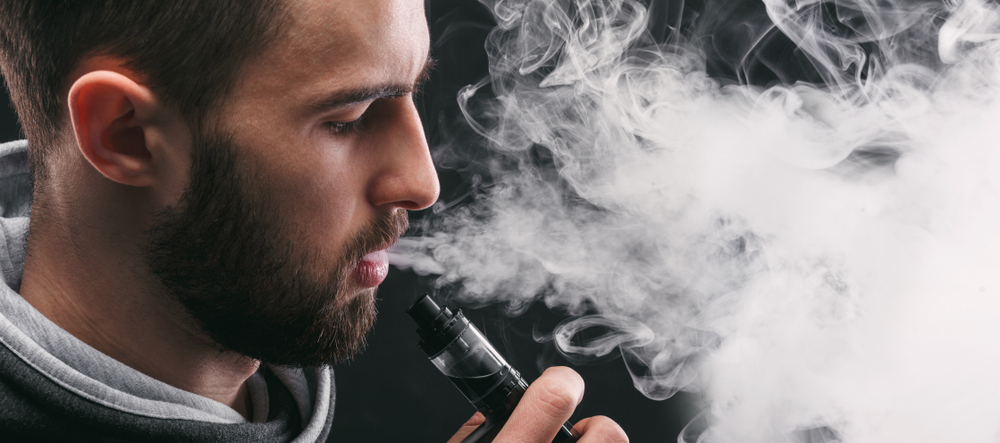Smoking tobacco does little good for your health. This is why many individuals find vaping to be a healthier alternative to smoking cigarettes. However, consider quitting both habits if you want your body to start healing properly.
Here are four tips to help you quit vaping and smoking.

Stop Setting a Specific Quit Date
Addictive tendencies may become more difficult to quit when you try to stop smoking or vaping abruptly. For example, saying you’ll quit smoking and vaping by next month might only fail.
This so-called “plan” presents you with illusions of control. One look at a pack of cigarettes or vape pens will make quitting more difficult than you intended.
Instead, consider quitting at a slower pace. You can achieve that goal by not setting a specific quit date. Hence, you can still smoke or vape tomorrow but reduce your consumption gradually. For instance, if you’ve been burning five cigarette sticks per day, reduce that number to four starting tomorrow. Then, reduce that amount even further as you continue with cleansing your body and mind from the habit.
Pinpoint and Avoid Triggers
It will be easier to stop your habits if you don’t expose yourself to triggers. These instances cue the mind to want addictive substances, even though there might be no actual need for these substances. Triggers to vaping and smoking may include:
- Watching people vape or smoke
- Seeing vape pens, cartridges, and cigarettes
- Smelling vape or tobacco smoke
- Talking about vaping or smoking
These cues might trigger your routines. You might find it increasingly challenging to resist the urge to grab your vape pen or cigarette to vape or smoke.
Find the source of the temptation and promptly dispose of the trigger or walk away from it. It might be a cigarette ad, or your vape pen sitting on a table in your room. It might be difficult at first, but you might find a sense of relief once you eliminate these triggers of smoking or vaping.
However, don’t pressure yourself to avoid thoughts of smoking or vaping. Trying “not to think” about smoking or vaping may not work as intended. Your body and mind might already find tobacco and nicotine to be a part of daily life. For this reason, it might be like removing your favorite food from your system and trying not to think about it.
Therefore, it’s okay to think about smoking or vaping sometimes. But try your best not to return to the toxic behavior.

Find Healthier Alternatives
You can associate habitual triggers with something else other than smoking or vaping.
For example, if you see an online ad about cigarettes, you can drink a delicious, healthy juice instead. Remember, it might take about 20 days for an activity to become a routine. So, it’s best to keep a dedicated mindset to change previous habits to healthier actions.
You may also dabble into using home remedies to help you quit smoking or vaping. Associate your cues by reaching for and consuming healthy options like licorice and green oats. These natural substances might help eliminate unhealthy activities.
For instance, chewing a licorice stick helps reduce the urge to smoke tobacco. Furthermore, this expectorant herb may help balance cortisol levels to aid in reducing mental and physical fatigue and stress.
Conversely, eating green oats upon experiencing habitual triggers may help promote nicotine detoxification.
Get Support
Recovery from smoking and vaping doesn’t have to be a lonely endeavor. You can always seek assistance from people who can help you in your path to become nicotine-free.
Start by seeking help from the people you hold close to your heart. These individuals might be your parents, significant other, or close friends. Tell these people about your woes and remain dedicated in removing the toxic substances from your body.
You may also seek help from support teams. Talking about your problems with other like-minded people can produce a feeling that’s like removing a thorn from your chest. That sensation may help cement your dedication to kick the smoking or vaping habit for good.
Also, don’t forget to talk to your doctor or other health care professional. These healthcare professionals might offer medical assistance by giving you prescriptions that may assist in cleansing your body and mind from the toxic substances.
Final Thoughts
As you try to quit smoking and vaping, always keep your guard up as you can still experience a relapse. Be patient with yourself. Follow these tips to successfully take on the challenge of quitting vaping and smoking one step at a time. It might be a slow and steady process, but you’ll enjoy a tobacco- and nicotine-free life over time.